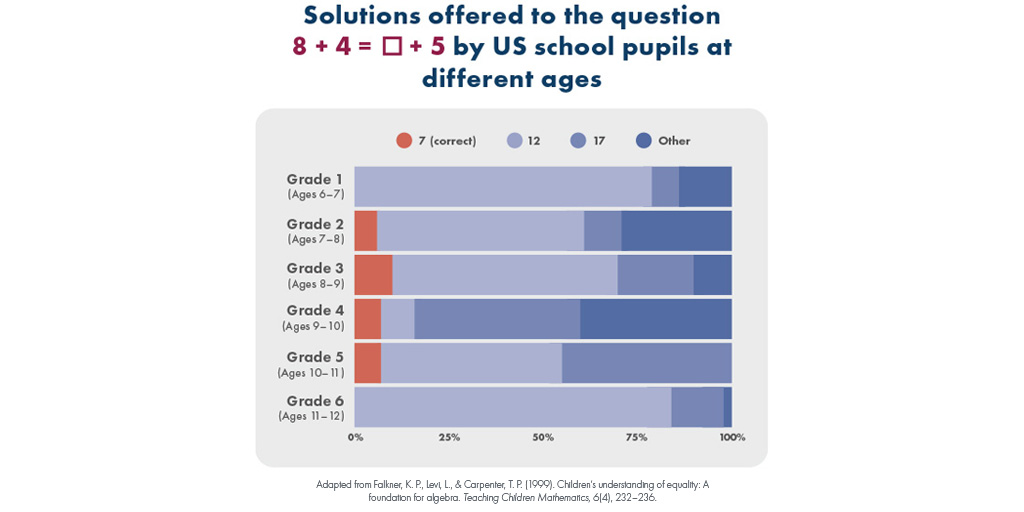01 December 2020

What does research suggest about teaching and learning the equal sign?
- Use of the phrase equal sign instead of equals sign may help to remind teachers and students of its multiple meanings beyond just “perform a calculation”
- Students should have opportunities to encounter multiple properties of equality in their use of the equal sign as part of an intentional focus on its uses
- Developing a solely operational view of the equal sign (reading it as “gives” or “makes”) can suggest misconceptions to students; this is currently very common in primary school mathematics in countries such as the UK and the US
- Encouraging students to develop a relational and a substitutive view of the equal sign through explicit instruction helps to develop their mathematical intuition around order, change and equivalence, thus preventing some misconceptions
- Reading the equal sign as “is the same as” helps to promote a relational view of its use
- Developing a sophisticated understanding of the equal sign, including relational and substitutive views, is the basis for successful understanding of algebra
View EspressoView in Norwegian